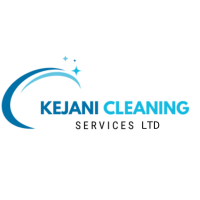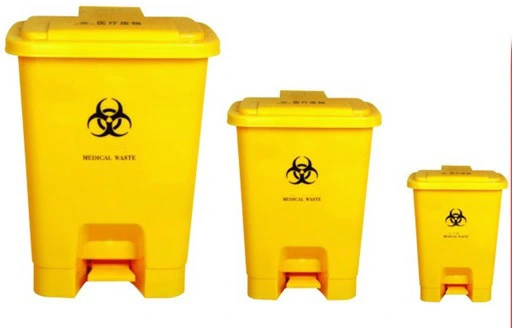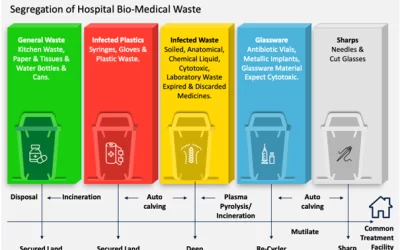Managing clinical waste is a serious matter. Whether you’re running a large hospital in Nairobi or a small health center in Kisumu, ensuring your clinical waste bins are secure, easy to use, and compliant with Kenyan regulations is vital for hygiene, health, and legal safety.
This guide by Kejani Cleaning Services Limited answers two frequently asked questions:
-
Do clinical waste bins need to be locked?
-
How do you open and use medical waste bins correctly?
What Are Clinical Waste Bins?
Clinical biohazard waste bins are specialized containers used to collect hazardous medical waste, such as sharps, infectious materials, anatomical waste, and pharmaceuticals. These bins are color-coded based on the type of waste they contain and are essential for waste segregation and infection control in healthcare settings.
Do Clinical Waste Bins Need to Be Locked?
✅ Yes — Locking Is Often Required
Locking medical waste bins is not only a best practice, but it is mandatory in many cases, especially for the following types of waste:
| Type of Waste | Lock Required? | Reason |
|---|---|---|
| Sharps waste | ✅ Yes | Prevent needle-stick injuries |
| Pharmaceutical waste | ✅ Yes | Prevent misuse or theft |
| Cytotoxic/chemical waste | ✅ Yes | Safety and legal compliance |
| Infectious waste | 🚫 Optional | Strong lid/pedal bin sufficient |
💡 OSHA & NEMA Guidelines in Kenya
Kenyan health and safety guidelines recommend lockable lids or tamper-proof waste containers for hazardous medical waste that could pose a security or health risk if accessed by unauthorized personnel.
Benefits of Lockable Clinical Waste Bins
-
🔐 Prevents Accidental Exposure: Reduces risk of infections and needle-stick injuries.
-
🧪 Protects the Environment: Ensures hazardous chemicals or pharmaceuticals aren’t improperly disposed of.
-
🚫 Restricts Unauthorized Access: Prevents misuse, drug theft, or scavenging.
-
✅ Ensures Regulatory Compliance: Helps meet requirements set by KEBS, OSHA, and NEMA.
Where Should Lockable Medical Waste Bins Be Used?
-
Operating rooms
-
Laboratory disposal zones
-
Pharmacies
-
Isolation wards
-
Oncology departments
-
Transport areas before incineration
How to Open a Medical Waste Bin (Safely)
Opening a clinical waste bin should be done with care, and ideally minimized to prevent contamination. Depending on the type of bin, here’s how to do it:
1. Pedal Bins
Most common in hospitals and clinics.
How to open:
-
Step on the foot pedal gently.
-
Lid opens automatically without touching the bin.
Best for:
General infectious waste, dressings, gloves
2. Sharps Bins / Containers
Made of puncture-resistant plastic with a locking lid.
How to open:
-
Twist or press the side tab (depending on model).
-
Some models have push-button release or screw-top.
Warning:
Always wear gloves when opening sharps bins, and never reopen full containers.
3. Pharmaceutical / Cytotoxic Bins
Often sealed and tamper-evident.
How to open:
-
Use designated tools or latches.
-
Not designed for frequent access — mostly filled and then locked permanently for disposal.
Important:
Never attempt to force open a bin with expired or contaminated waste. If the lock is faulty, dispose of the bin securely.
Best Practices for Using Medical Waste Bins in Kenya
✅ Use Color-Coded Liners
Each bin should match the bag and waste type:
-
Red: Infectious
-
Yellow: Pathological/sharps
-
Black: General
-
Purple: Cytotoxic
-
Green: Organic
-
Blue: Non-infectious recyclables
✅ Keep Bins Covered
Lids should remain closed when not in use. Pedal bins are preferred to avoid hand contact.
✅ Don’t Overfill
Bins should be filled to ¾ of their capacity and then sealed for safe transport or incineration.
✅ Label Bins Clearly
Use stickers or signage to identify the type of waste being collected, along with hazard symbols.
✅ Clean & Disinfect Regularly
All bins, even those with liners, should be cleaned with disinfectant on a regular basis to avoid odor, biofilm buildup, and pest attraction.
Where to Buy Lockable Clinical Waste Bins in Kenya
At Kejani Cleaning Services Limited, we supply a wide range of clinical waste bins suitable for hospitals, clinics, dental offices, and pharmacies.
-
🟥 Lockable red infectious bins
-
🟨 Yellow sharps containers
-
🟪 Cytotoxic waste containers
-
⬛ General purpose wheelie bins
-
✅ Pedal-operated bins with hands-free lids
🔗 Shop Clinical Waste Management Solutions
FAQs
Q: Can I use a regular plastic bin for medical waste?
A: No. Regular bins do not meet safety or regulatory requirements for healthcare waste.
Q: What should I do if my clinical bin doesn’t lock properly?
A: Remove the bin from use immediately and replace it with a secure alternative. Do not attempt to force or tape it shut.
Q: How do I dispose of a full clinical bin?
A: Ensure it is sealed or locked, labeled correctly, and transported according to your facility’s waste disposal protocol — ideally to a licensed incinerator or disposal contractor.
Conclusion
Locking clinical waste bins is more than a convenience — it’s a necessity for protecting lives, the environment, and your facility’s legal compliance. Knowing how to safely open, use, and maintain these bins is essential for any healthcare professional or administrator in Kenya.
For quality clinical bins and expert advice, trust Kejani Cleaning Services Limited — your partner in safe, sustainable healthcare cleaning and waste management solutions.




0 Comments